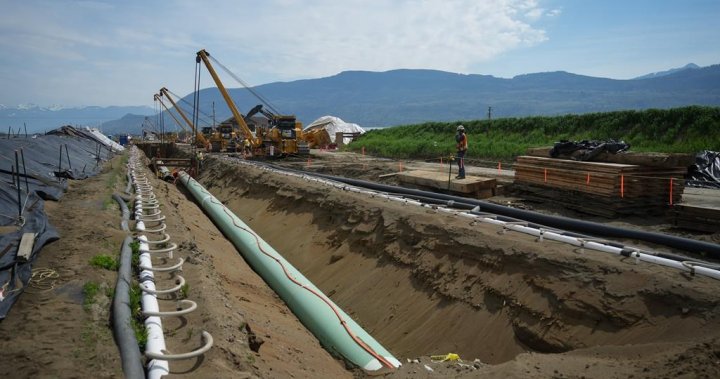
Calgary Chamber says federal emissions cap could hurt value of Trans Mountain pipeline
Global News
Canada's oil industry has been fighting tooth-and-nail against the promised cap, which the federal government has said it expects to finalize later this year.
The Calgary Chamber of Commerce is warning Ottawa that its proposed cap on emissions from the oil and gas sector could compromise the valuation and sale of the Trans Mountain pipeline.
The business group made the argument Wednesday in an open letter urging the federal government to reconsider proceeding with the promised cap, which the government has said it intends to finalize in mid-2024.
“If there is a risk that (Trans Mountain) might not be able to rely on a steady and predictable flow of oil from the oil sands production, it will result in a lower valuation by investors and a lower price received when the asset is sold,” states the letter, which was signed by Calgary Chamber of Commerce president Deborah Yedlin as well as a number of other Alberta-based business groups and oil-and-gas sector leaders.
The federal government published its regulatory framework for a proposed cap on emissions from the oil and gas sector in December last year and the industry has been fighting tooth-and-nail against it.
The government has said that under its proposed plan, the oil and gas industry will have to cut emissions by more than one-third by 2030 or buy offset credits.
It has said the cap is meant to cap pollution, not production, but the industry has warned the cap will have “unintended consequences” — scaring away investment and potentially causing companies to curtail their output.
“Rather than support investment, the emissions cap would create uncertainty, unfavourable economic conditions and a punitive regulatory environment, all of which would strand investment and innovation in decarbonization projects,” the Calgary Chamber said Wednesday.
The Chamber added the uncertainty around the proposed emissions cap is coming at the same time the federal government has embarked on the first phase of what is expected to be a two-part divestment process for the Trans Mountain pipeline.











